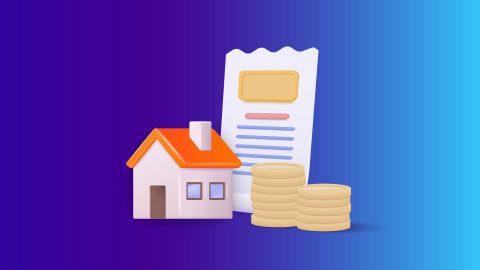Tax benefits on principal repayment
The first way you can save tax with a home loan is through the principal repayment. Under Section 80C of the Income Tax Act, you can claim a deduction of up to Rs. 1.5 lakh annually for the repayment of the principal amount of your home loan. This means that for every year you pay off the principal portion of your loan, you can reduce your taxable income by up to Rs. 1.5 lakh.Tax benefits on interest payment
Another significant benefit of a home loan is the deduction on interest payments. Under Section 24(b), you can claim a deduction of up to Rs. 2 lakh annually on the interest paid on your home loan. This deduction is available for a self-occupied property. If you let out your property, you can also claim a deduction on the full amount of interest paid, with no upper limit.This means that if your home loan interest is Rs. 2 lakh or more in a year, you can deduct the entire amount from your taxable income. If the interest is higher than Rs. 2 lakh, you will still get the maximum benefit of Rs. 2 lakh for tax savings.
Additional benefits for first-time homebuyers
If you are a first-time homebuyer, you can enjoy an additional deduction under Section 80EE. This section provides a deduction of up to Rs. 50,000 on the interest paid on home loans. To be eligible, the loan must be taken from a financial institution for the purchase of a residential property, and the value of the property should be less than Rs. 50 lakh.This deduction is over and above the Rs. 2 lakh limit under Section 24(b), so you can claim both. This means that if you are a first-time homebuyer, you can save an extra Rs. 50,000 on your taxes each year.
Tax benefits on home loan for a second property
You can enjoy tax benefits on the principal and interest paid.1. For principal repayment: Under Section 80C, claim up to Rs. 1.5 lakh on the principal amount.
2. For interest payment: Section 24(b) allows deductions on interest paid.
- If rented out: Claim a 30% standard deduction on Net Annual Value (NAV). Interest paid is deductible without a limit.
- If self-occupied: Both houses are treated as 'self-occupied.' The deduction on interest is capped at Rs. 2 lakh combined.
- If both rented: Interest deduction has no limit.
Tax benefits for joint home loan
By jointly applying for a home loan, co-applicants can enjoy tax deductions individually if they are co-owners and contribute to the repayment.- Principal repayment: Each co-applicant is eligible to claim deductions on their portion of the principal repayment, subject to the maximum limit of Rs. 1.5 lakh.
- Interest payment: Under Section 24, self-occupied property allows deductions up to Rs. 2 lakh, while let-out property has no limit on interest deduction.
No tax benefits for unfinished property
It is important to note that the tax benefits apply only to completed or occupied properties. If you have taken a home loan for an under-construction property, you will not be able to claim the tax benefits until the construction is completed and you begin paying EMIs. However, you can claim the deductions for interest payments under Section 24(b) once the property is ready for possession.How much tax can be saved by home loan?
To sum it up, the total tax benefit you can get from a home loan depends on your loan amount, interest rate, and whether you are a first-time homebuyer. If you are paying Rs. 1.5 lakh towards principal repayment and Rs. 2 lakh towards interest, you could save a significant amount on your taxes each year.For first-time homebuyers, the additional deduction under Section 80EE can save you even more, bringing the total tax savings to over Rs. 4 lakh in some cases.
Explore Bajaj Housing Finance Home Loan
If you are looking to save tax and own a home, a Bajaj Housing Finance Home Loan can help you achieve both. With competitive interest rates, flexible repayment options, and quick disbursal, Bajaj Housing Finance is an ideal partner in your home-buying journey.Here are a few key benefits of choosing Bajaj Housing Finance Home Loan:
1. High loan amount: Secure funding up to Rs. 15 Crore* to turn your dream home into reality.
2. Low interest rates: Enjoy interest rates starting 7.15%* p.a, and EMIs as low as Rs. 664/lakh*.
3. Quick approval: Get approved within 48 Hours* of applying – sometimes even sooner.
4. Flexible repayment tenure: Choose a repayment term of up to 32 years for comfortable EMIs.
5. Simple application: Take advantage of doorstep document collection for a smooth process.
6. Balance transfer facility: Move your existing home loan and get a top-up loan with better terms.
By choosing a Bajaj Housing Finance Home Loan, you can take advantage of tax-saving opportunities and ensure your dream home is within reach. Apply today and start saving taxes while securing your future.




